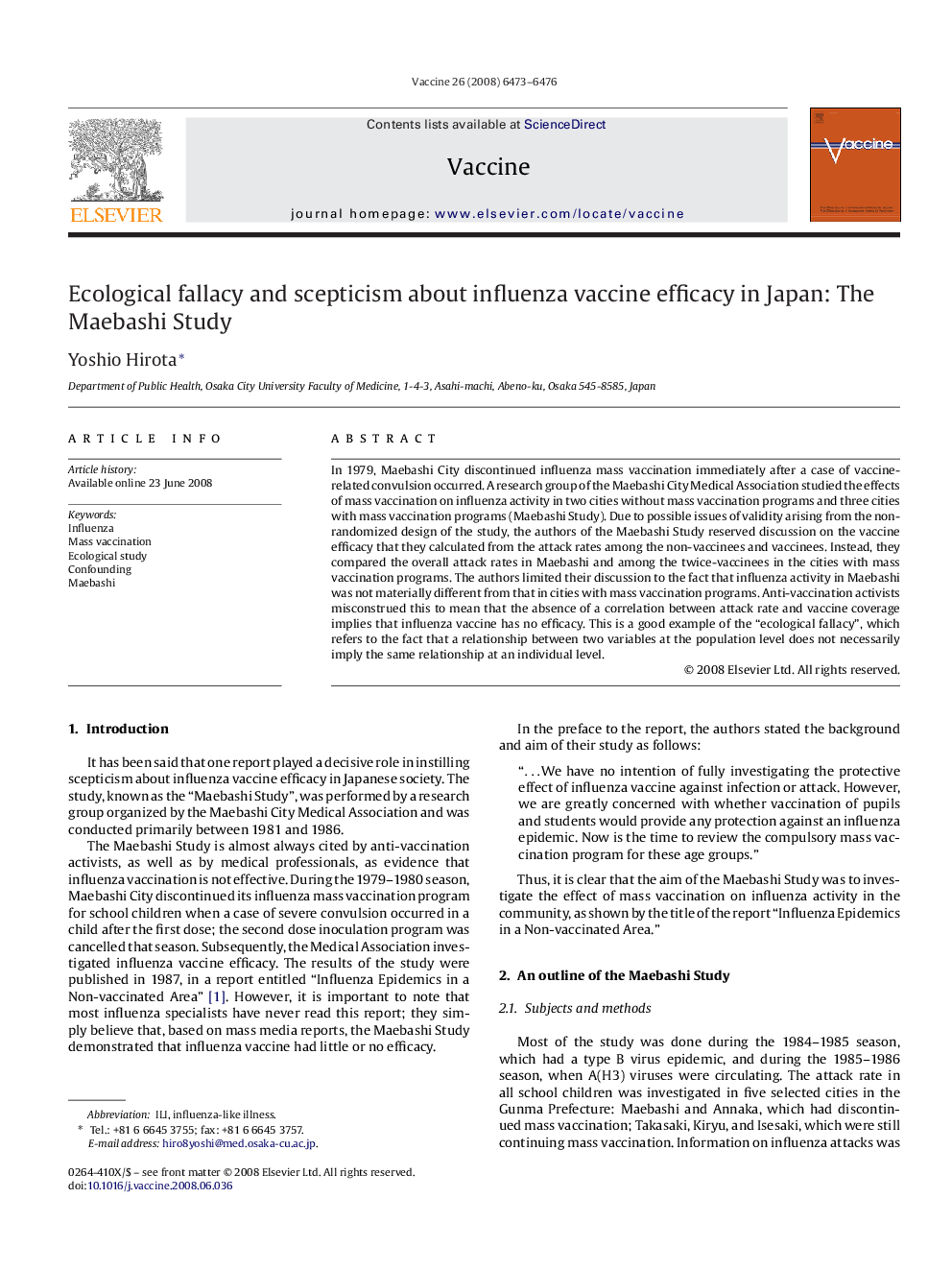| کد مقاله | کد نشریه | سال انتشار | مقاله انگلیسی | نسخه تمام متن |
|---|---|---|---|---|
| 2406443 | 1103080 | 2008 | 4 صفحه PDF | دانلود رایگان |

In 1979, Maebashi City discontinued influenza mass vaccination immediately after a case of vaccine-related convulsion occurred. A research group of the Maebashi City Medical Association studied the effects of mass vaccination on influenza activity in two cities without mass vaccination programs and three cities with mass vaccination programs (Maebashi Study). Due to possible issues of validity arising from the non-randomized design of the study, the authors of the Maebashi Study reserved discussion on the vaccine efficacy that they calculated from the attack rates among the non-vaccinees and vaccinees. Instead, they compared the overall attack rates in Maebashi and among the twice-vaccinees in the cities with mass vaccination programs. The authors limited their discussion to the fact that influenza activity in Maebashi was not materially different from that in cities with mass vaccination programs. Anti-vaccination activists misconstrued this to mean that the absence of a correlation between attack rate and vaccine coverage implies that influenza vaccine has no efficacy. This is a good example of the “ecological fallacy”, which refers to the fact that a relationship between two variables at the population level does not necessarily imply the same relationship at an individual level.
Journal: Vaccine - Volume 26, Issue 50, 25 November 2008, Pages 6473–6476